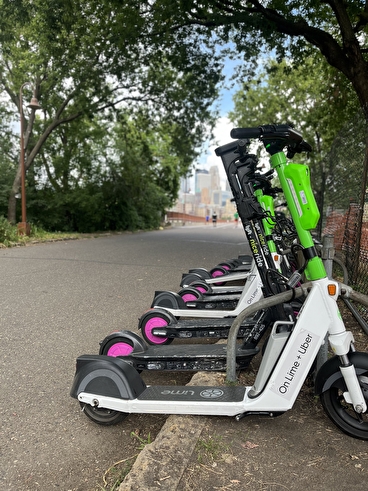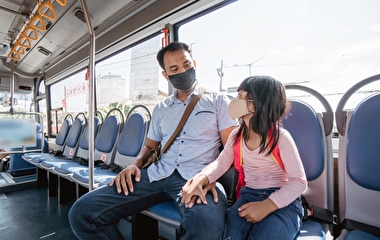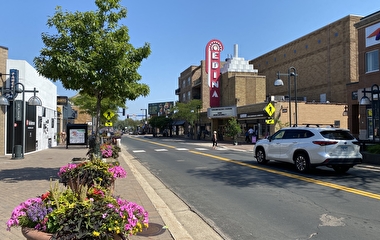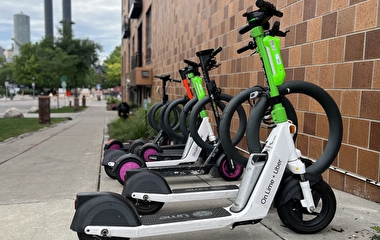
Leveraging private companies to create and expand shared mobility networks might help Minnesota meet some of its transportation goals. However, cities and transit agencies need to understand how to partner with these providers to achieve the best results. To that end, the Minnesota Department of Transportation partnered with the U of M Resilient Communities Project (RCP) to create the Shared Mobility Public-Private Partnership Guide.
RCP is a program at the U’s Center for Urban and Regional Affairs connecting faculty and students with local government agencies in Minnesota to address strategic projects that advance local resilience, equity, and sustainability.
Many cities in Minnesota are already working alongside private companies to coordinate shared mobility services (such as the goMARTI self-driving shuttle program in Grand Rapids). However, cities could benefit from a more formalized framework for making these arrangements. In 2022, the MnDOT Office of Transit and Active Transportation partnered with the RCP to study how private shared mobility companies operate and create the guide.
The first RCP study was conducted by Humphrey School grad students as part of a summer capstone course. The students gathered information on the types of business models and contracts offered by private shared mobility companies, how those companies’ business interests interacted with the needs of the communities they served, and best practices for forming public-private partnerships with them.
The second study—conducted by RCP Fellows—reinforced the findings of the first report by conducting interviews and surveys of city staff and shared mobility companies in Minnesota.
Read more about the research in a July 2023 Catalyst article.
The RCP research was ultimately adapted into the new guide. The online resource provides background on different shared mobility modes and offers suggestions on how to best pair modes with the needs of a given community. It also lists different public-private partnership models, suggests potential funding sources, and lays out the process for issuing a Request for Proposals.
In addition, the guide includes resources (such as webinars and technical support programs), case studies, and sample documents for each stage of the process.
According to MnDOT, this framework will likely make it easier for city staff to deal with complicated contracts and agreements—something they might not be trained for. It might also help cities coordinate actions and preserve institutional knowledge when staff members leave or retire.
—Sophie Koch, contributing writer


